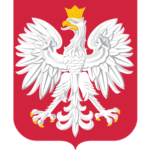Tuition fees
Foreigners are required to pay tuition fees. In some cases, they can be exempted from such fees (particularly if they have received a scholarship from NAWA, the National Agency for Academic Exchange). These cases are described below.
The amount of tuition fees in the academic year 2024/2025 can be found in the tables of tuition fees for foreigners for educational services in the cycle which began in academic year 2024/2025.
Information on tuition fees is contained in Regulation No. 82 of the Rector of the University of Silesia in Katowice of 3 June 2024 on the amount of fees for educational services for cycles of first- and second-cycle studies and uniform master’s studies starting in the academic year 2024/2025 (entry in Polish).
Full-time programmes taught in Polish and English are free of charge at the University of Silesia for a foreigner who meets at least one of the following criteria listed in Art. 324 section 1 of the Act of 20 July 2018 – Law on higher education and science:
- s/he possesses the Polish Card (Karta Polaka);
- s/he possesses a valid decision on his Polish descent;
- s/he possesses a permanent residence permit;
- s/he is a citizen of a member state of the European Union, of the European Free Trade Association, of the European Economic Area or of Switzerland;
- s/he is a family member of a citizen of a member state of the European Union, of the European Free Trade Association, of the European Economic Area or of Switzerland and lives in Poland;
- s/he possesses a temporary residence permit due to the circumstances mentioned in Article 159 Section 1 or Article 186 Section 1 Point 3 or 4 of the Act on foreigners of 12 December 2013 (Journal of Laws 2013, Position 1650);
- s/he possesses a long-term EU resident permit;
- s/he is a refugee acknowledged by the Republic of Poland;
- s/he is under temporary protection on the territory of the Republic of Poland;
- s/he is under subsidiary protection on the territory of the Republic of Poland;
- s/he is a spouse, a parent or a child of a citizen of the Republic of Poland and lives in Poland;
- s/he possesses a certificate issued by the State Board for Certification of Polish as a Foreign Language, confirming his/her knowledge of Polish as a foreign language at least at C1 level.
Additionally, a right not to pay tuition fees for full-time studies at the University of Silesia in Katowice have foreign candidates who:
- s/he has graduated from an undergraduate programme at the University of Silesia and wishes to continue his/her education in a graduate programme at the University of Silesia;
- s/he has successfully completed a one-year preparatory course for foreigners planning to study programmes taught in Polish offered by the School of the Polish Language and Culture of the University of Silesia, if the programme s/he is applying for is taught in Polish;
- s/he is a winner of the contest for the best foreign candidates.
Member states of:
| EU
European Union |
EEA
European Economic Area |
EFTA
European Free Trade Association |
|
|
1. Iceland
2. Lichtenstein 3. Norway 4. Switzerland |
| In order to confirm his/her entitlement to start and study a programme at the University of Silesia free of charge, a foreigner should show: |
| a personal ID or a passport containing the information that s/he is a citizen of:
· a member state of the European Union, · Switzerland, · a member state of EFTA, · a member state of EEA. |
A foreigner is a family member of a European Union citizen, if s/he:
- is a spouse of this EU citizen;
- is a child of this EU citizen or a child of his/her spouse, aged not more than 21 or a dependent of this EU citizen or his/her spouse;
- is a parent of this EU citizen or a parent of his/her spouse and a dependent of this EU citizen or his/her spouse.
Legal basis: Article 2 Point 4 of the Act on entry, stay and exit of citizens of EU member states and their family members in the Republic of Poland of 14 July 2006 (Journal of Laws 2017, Position 900).
| In order to confirm his/her entitlement to start and study a programme at the University of Silesia free of charge, a foreigner should show: |
| · a document confirming his/her family ties with a EU citizen, e.g.
o marriage certificate (if the marriage was concluded in Poland, an abridged copy of the marriage certificate); o birth certificate (if the birth was registered in Poland, a complete copy of the birth certificate); · a document confirming that s/he lives in Poland, e.g. a confirmation of registration in Poland. |
A temporary residence permit due to the circumstances mentioned in Article 159 Section 1 or Article 186 Section 1 Point 3 or 4 of the Act on foreigners of 12 December 2013 applies to:
Article 159 Section 1: a temporary residence permit issued to a foreigner wishing to join his/her family.
Article 186 Section 1: a temporary residence permit due to other circumstances, issued to a foreigner who:
Point 3: possesses a long-term EU resident permit issued by another EU member state
and:
– is planning to work or operate a company in Poland
or
– is planning to start or continue a university programme or vocational training in Poland
or
– shows that there are other circumstances justifying his/her wish to live in Poland
or
Point 4: is a family member of a foreigner meeting the above criteria (under Article 186 Section 1 Point 3), s/he has stayed with this foreigner in another EU member state and joins him/her in Poland.
| In order to confirm his/her entitlement to start and study a programme at the University of Silesia free of charge, a foreigner should show: |
| · a resident permit, a temporary resident permit,
· a decision of the Province Governor on granting him/her a temporary residence permit due to the circumstances mentioned in Article 159 Section 1 or Article 186 Section 1 Point 3 or 4 of the Act on foreigners of 12 December 2013 |
A foreigner, i.e. a person without Polish citizenship, who is a spouse, a parent or a child of a citizen of the Republic of Poland and lives in Poland.
| In order to confirm his/her entitlement to start and study a programme at the University of Silesia free of charge, a foreigner should show: |
| · a document confirming his/her family ties with a EU citizen, e.g.
o marriage certificate (if the marriage was concluded in Poland, an abridged copy of the marriage certificate); o birth certificate (if the birth was registered in Poland, a complete copy of the birth certificate); · a document confirming that s/he lives in Poland, e.g. a confirmation of registration in Poland. |
A certificate confirming a foreigner’s knowledge of Polish as a foreign language has to be issued by the State Board for Certification of Polish as a Foreign Language, in accordance with the Act on the Polish Language of 7 October 1999 (Journal of Laws 2018, Position 931).
The certificate has to confirm that the foreigner knows Polish at least at C1 level.
Only a certificate that is in conformity with the specimen included in the Ruling of the Minister of Science and Higher Education on exams in Polish as a foreign language of 26 February 2016 entitles the candidate to start full-time courses taught in Polish free of charge.
Detailed information about certificate exams in Polish as a foreign language are available from the State Board for Certification of Polish as a Foreign Language.
| In order to confirm his/her entitlement to start and study a programme at the University of Silesia free of charge, a foreigner should show: |
| a certificate issued by the State Board for Certification of Polish as a Foreign Language, confirming his/her knowledge of Polish as a foreign language at least at C1 level. |
In the academic year 2024/2025 all the foreigners applying for programmes offered by the University of Silesia who are not entitled to study free of charge, may participate in a contest for the best foreign candidates. Foreigners with the best results of the qualification procedure will not have to pay to study. This applies to undergraduate, graduate and long-cycle MA/MSc programme candidates.
The qualification procedure creates a ranking of the best foreign candidates. The criteria are the candidate’s results (i.e. grades on his/her secondary school-leaving certificate or university/college diploma) as well as their knowledge of Polish (or English).
Each candidate who registers in the IRK system, has good grades from the previous stage of education, and possesses language skills in Polish or English that enable them to study in this language may get a chance to study at the University of Silesia free of charge.
If a candidate is admitted within this procedure, they will not pay student fees, but they will not get any scholarship from the University. They will have to cover the costs of living in Poland, including accommodation.





